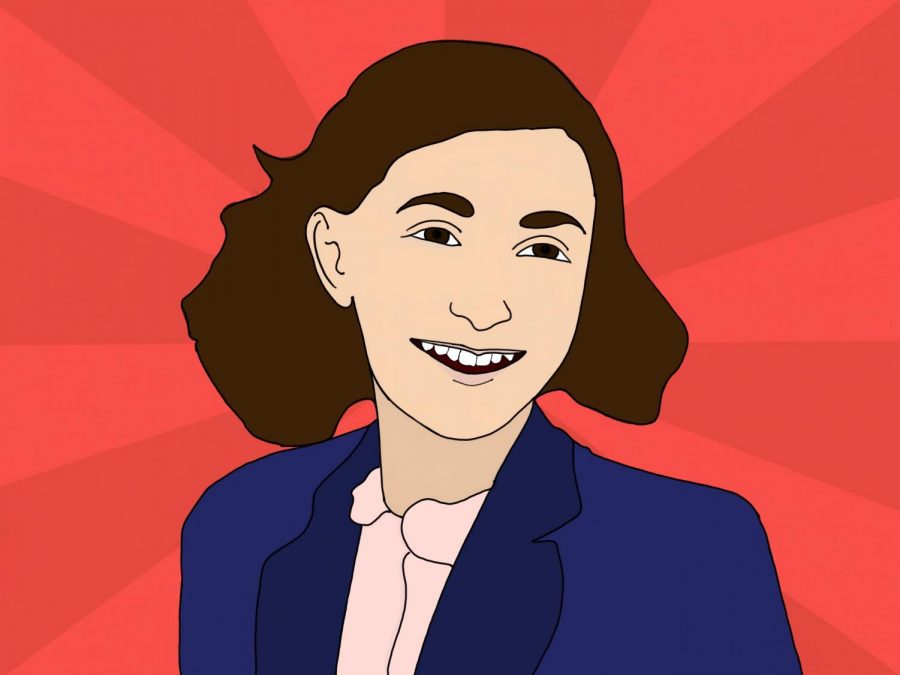The Diary of Anne Frank needs more Jewish representation
December 13, 2019
Representation matters. Growing up, I never felt like I was represented. There were no “modern” Jewish women in books, movies and TV shows who I could look up to. The only place I could find people who were like me were in stories about Jewish persecution, more specifically, the Holocaust. So that’s where I went. I spent years and years consuming every piece of material I could find. Learning about genocide was somehow an essential part of my childhood. I read countless pages about children hidden from Nazis. I could name locations of certain concentration camps and how many people died there by the time I was in 5th grade. I taught my class a Holocaust unit. Anne Frank was, in some crazy way, a hero for me. She was one of the very few Jewish girls I could look up to, so I read her diary obsessively, taking in every meaningful word with appreciation and pain.
This fall, ETHS announced that its winter play would be “The Diary of Anne Frank.” Immediately, this worried me. This is an in- credibly challenging story to tell, especially for high school students, and on top of that, I knew there wouldn’t be very many Jewish actors auditioning.
“ETHS doesn’t have a large Jewish population, especially in the theatre department,”says junior Abby Diamond, who identifies as Jewish.
When the cast list was released a couple months later, I found that there was only one actor in the whole production who identifies as Jewish. This is problematic because of the fact that this story is specifically Jewish. Being Jewish is not a secondary characteristic of Anne; this story wouldn’t exist if it weren’t for her Jewishness.
There is a long history of actors and actresses playing characters who are part of marginalized communities that they are not a part of. A recent interview with Gregory Allen, the screenwriter of the new Harriet Tubman biopic, with CNN on Nov. 20, 2019, revealed that one Hollywood studio executive suggested Julia Roberts, a white woman, play Harriet (not in blackface). Harriet Tubman’s blackness is crucial to her story. In 1993, Tom Hanks played a gay lawyer infected with HIV named Andrew Beckett in the well-known movie Philadelphia. As a straight man, Hank, could not understand the trauma and history in the LGBTQ+ community surrounding the AIDS crisis. Being gay is imperative to Beckett’s character.
I am a white person who is involved in anti-racism work. I can read books and watch movies and talk to people, yet I will never be able to understand what it’s like to live as a person of color in America. I will never know the fear a black person may feel when being pulled over by the police. I will never understand the anxiety of what it’s like to be a Muslim person walking through a metal detector at airport security. I just don’t have those experiences. Because of this, I would not be the best person to tell one of these stories from that perspective.
Non-Jews, specifically those who are part of religious majorities, can go to the Holocaust museum and attend Jewish celebrations and have conversations with their Jewish
friends, and they still will never know what it is like to experience antisemitism.
They don’t know what it is like to live in fear of being killed when celebrating Jewish holidays or just going to pray on a random Saturday. They will never live with generational or relational trauma from the Holocaust and the multitude of other atrocities committed against Jewish people. Put simply, they will never understand what it is like to be persecuted for their religion.
Non-Jews can relate to Anne’s story on a human level. It’s sad and it’s touching, but there’s still a level of disconnect. It’s not personal. At one point in the play, Peter Van Daan, a young Jewish boy living with his family in the same attic with Anne, says, “When I get out of here, I’m never going to tell anyone that I’m Jewish.”
There is no way a non-Jewish person could fully understand how this specific narrative of trauma to assimilation informs Jewish history. At the end of the show, Nazis come and take Anne’s family away. Getting pulled away from your family by Nazis is something that is so imminent and so real to Jewish people. Many of us have extended family who could have had an almost identical experience, and therefore feel a strong fear and personal connection to that.
This doesn’t mean that Anne’s story isn’t important to tell or perform in any context. Although I do think there is an obvious problem with not having a predominantly Jewish cast, that doesn’t completely discredit the value that the story has on its own. In a perfect world, all of the Jewish characters would be played by Jewish people, but this would be almost impossible to achieve at ETHS. With that being said, this article is by no means an attack on all of the talented actors involved in the production.
“I think the story needs to be told, but it needs to be told from the perspective of someone who can personally identify with the characters and take on the personal heft of it,” says Diamond.
We all deserve representation. We all deserve a voice. We all deserve our stories being told in a way that does them justice. By making the choice to do this production in this way, Jewish people are not given a chance to tell the very few stories that truly belong to us in the first place. Representation matters, regardless of who it is for, and a Jewish woman should be played by a Jewish woman. It’s as simple as that.




















